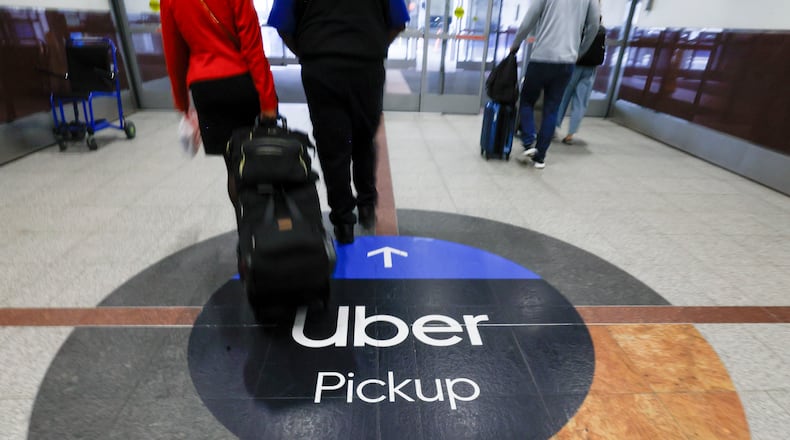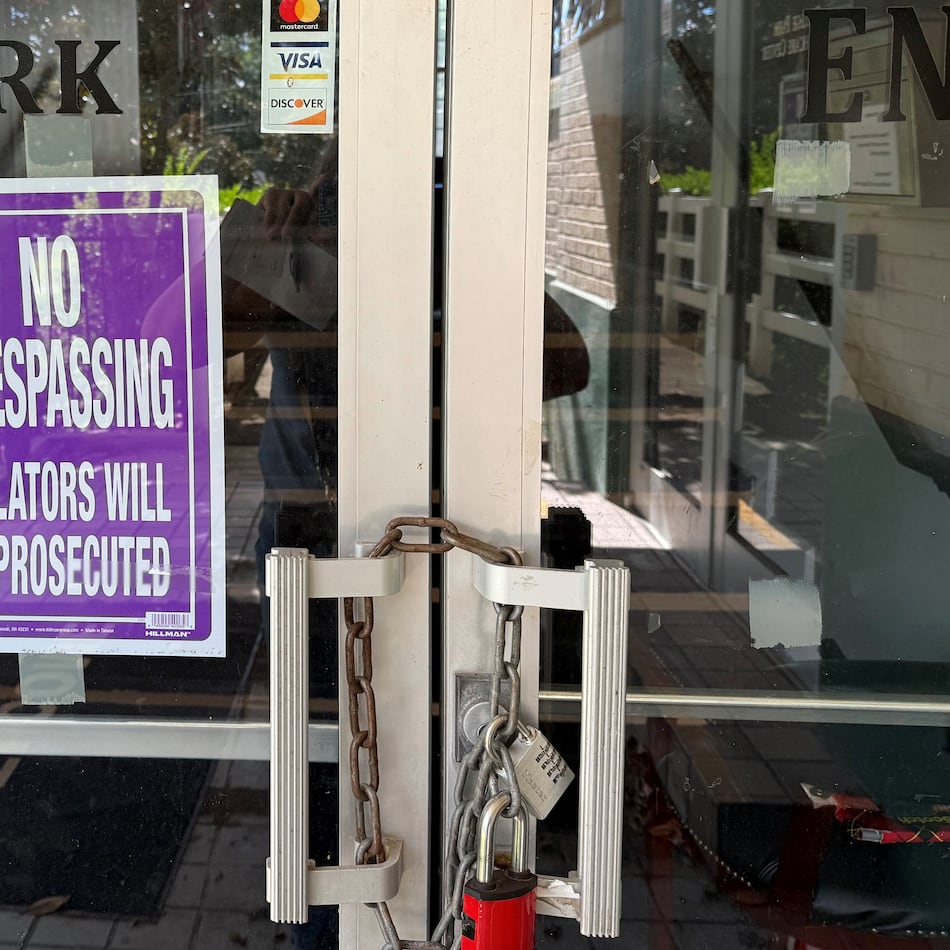Still on the hook for $9 million in unpaid sales tax from its first years operating in Georgia, Uber is asking the state’s highest court for help, with backing from economic powerhouses.
The ride-hailing company has been fighting the Georgia Department of Revenue since the agency billed the business $22 million in 2018 for overdue sales tax and associated penalties.
Uber keeps losing the battle and is now asking the Georgia Supreme Court to take its case, alleging the department’s overreach could have wide-ranging ramifications if not corrected.
This week, Uber got a helping hand from the Georgia Chamber, Metro Atlanta Chamber and Georgia Association of Manufacturers, which urged the court to consider the vulnerability of Georgians and the state’s business community. They said the rulings in the case to date, if allowed to stand, will lead to “uncertain, costly, and fundamentally unfair outcomes for Georgia businesses.”
“A powerful department, unbounded by statutory limits, may impose errant assessments against other Georgia businesses, particularly small, innovative businesses whose services and products may not fit into tax statutes as written,” the organizations said.
In May, Uber reported its year-over-year revenue grew 14% to $11.5 billion and income from operations was $1.2 billion. A representative for the company said the Georgia judges who have ruled against it relied on a faulty legal assumption.
The state has yet to respond in court to Uber’s petition for review.
Uber alleges the Georgia General Assembly has the exclusive authority to impose state taxes and that the Department of Revenue overstepped when taxing Uber as if it were a taxi or limousine company. That was in Uber’s early years of operation, before state legislators decided how ride-hailing companies should be taxed.
The Georgia Tax Tribunal, a Fulton County judge and the Georgia Court of Appeals have in turn rejected Uber’s arguments in its attempt to avoid paying the debt.
The tribunal determined in late 2022 that Uber owes around $9 million in sales tax for the first three years it operated in Georgia, from July 2012 to June 2015. Case records show Uber did not collect sales tax from riders and pay it to the state during that time.
Uber argued its drivers were responsible for collecting and paying any sales tax required by the state back then.
In April 2024, Fulton County Superior Court Judge Charles Eaton ruled against Uber, upholding the tax tribunal’s judgment. He affirmed the Revenue Department was authorized to tax Uber in line with a regulation on cars for hire.
Eaton said getting sales tax from thousands of Uber drivers who might not maintain records and who could change week to week would be a logistical nightmare for the state. In contrast, Uber was in an ideal position to collect the tax and pay it, he said.
The Georgia Court of Appeals agreed with Eaton in May 2025, saying the Department of Revenue was within its power to tax Uber the way it did.
In its appeal to the state Supreme Court, Uber said the lower court’s ruling improperly gives the Revenue Department “unprecedented and virtually unlimited authority.”
“If the Court of Appeals’ decision is upheld, Georgia will have the dubious distinction of becoming the only state in the country where an administrative agency can impose sales taxes through its interpretation of a regulation,” Uber said.
The company’s position was also echoed this week by a Connecticut law professor and tax expert who urged the state Supreme Court to take the case.
The court has no deadline for deciding Uber’s request.
Since 2020, Uber and companies like it have paid a flat fee on rides for hire in Georgia, in lieu of sales tax. That arrangement, which helps fund transit projects, is not being challenged.
About the Author
Keep Reading
The Latest
Featured



